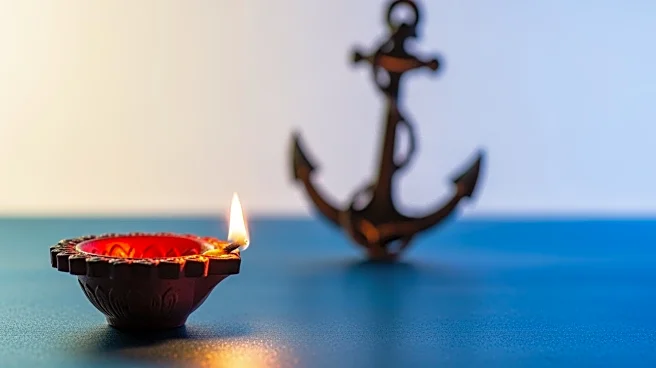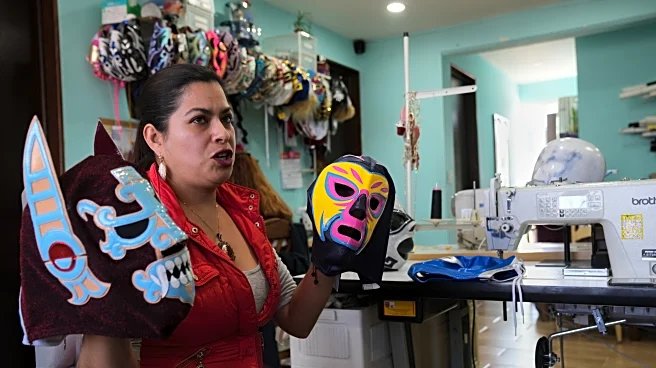What's Happening?
Prime Minister Narendra Modi celebrated Diwali with the Indian Navy personnel aboard the INS Vikrant, highlighting the vessel as a symbol of India's self-reliance and the 'Make in India' initiative. During
the celebration, Modi emphasized the importance of self-reliance in defense, noting the significant increase in India's defense exports over the past decade. He praised the role of defense startups and indigenous units in this success. Modi also referenced Operation Sindoor, a military operation against terrorist hideouts in Pakistan, as an example of India's military capability. The Prime Minister encouraged the purchase of Indian products during the festival, aligning with the government's push for Aatmanirbhar Bharat amid ongoing trade tensions with the United States.
Why It's Important?
This event underscores India's strategic focus on self-reliance, particularly in defense, which has implications for its economic and geopolitical positioning. By promoting indigenous production and defense exports, India aims to reduce dependency on foreign arms and bolster its economy. The emphasis on self-reliance also reflects a broader nationalistic sentiment, encouraging citizens to support domestic industries. This approach could strengthen India's defense capabilities and economic resilience, potentially altering its trade dynamics with major partners like the United States. The celebration of Diwali with the armed forces also serves to boost morale and national pride, reinforcing the government's commitment to military strength and self-sufficiency.
What's Next?
India is likely to continue its focus on enhancing indigenous defense capabilities and increasing exports. The government's push for Aatmanirbhar Bharat suggests further policy measures to support domestic industries and reduce import reliance. This could involve increased investment in defense technology and infrastructure, as well as incentives for startups and manufacturers. The ongoing trade tensions with the United States may also influence India's economic strategies, potentially leading to new trade agreements or adjustments in tariffs. The emphasis on buying Indian products during Diwali could set a precedent for future national campaigns promoting domestic consumption.
Beyond the Headlines
The celebration of Diwali with the armed forces highlights the cultural significance of the festival in fostering unity and national pride. Modi's call for purchasing Indian products taps into a broader cultural movement towards self-reliance and national identity. This aligns with global trends of economic nationalism, where countries prioritize domestic industries to safeguard against global uncertainties. The focus on indigenous production also raises ethical considerations regarding labor practices and environmental impacts, as increased manufacturing could affect local communities and ecosystems. Long-term, this shift towards self-reliance could redefine India's role in the global economy, influencing its diplomatic and trade relationships.











